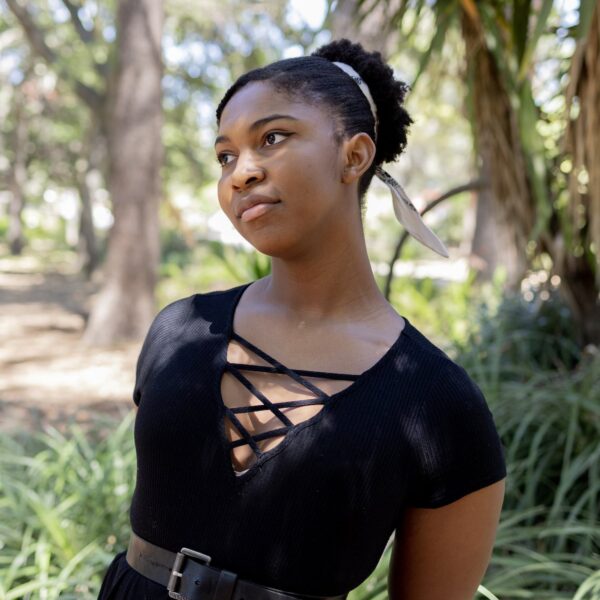The Lyric McHenry Community Arts Fellowship
Lyric McHenry Community Arts Fellowship
Fellowship administered by IDA with support from the Haas Center for Public Service and Stanford Arts.
Program Overview
Our summer Lyric McHenry Community Arts Fellowship allows Stanford undergraduates the opportunity to conduct research with a community-based arts organization or an established community-based artist for 35 hours a week / over at least 9 weeks during the summer quarter. Projects coming out of this fellowship have a distinct interest in questions that further the arts at the intersection of social justice.
Applicants must propose their own placements with organizations with whom they have corresponded before the application deadline, and effectively demonstrate that their intended partner is a well-run organization where they will receive adequate guidance and supervision. Fellows assist in building and maintaining relationships with these arts organizations and the communities in which they are based.
Program Details
Students who need support finding an arts organization or artist with whom to work can reach out to IDA staff for additional support.
Recent Fellows have worked with the Laundromat Project, MACRO, BLD PWR, Women's Audio Mission, Dana Kawano Studios, Rashaad Newsome Studios, and more.
Each Lyric McHenry Community Arts Fellow receives a base stipend of $7,500 award to support travel and living expenses during the summer. Financial aid and supplemental funding up to $9,000 total are available to students who qualify.
Lyric McHenry Community Arts Fellowships are available only to Stanford undergraduate students.
Fellowship History
This program is named and funded in honor of Lyric McHenry (Stanford ‘14). While at Stanford, Lyric McHenry interned at IDA, majored in Comparative Studies in Race and Ethnicity, and performed in and directed a number of theater productions. Lyric’s appreciation for the effect of the arts in the fight for social justice propelled her dedication to writing and producing. Her unique talent for uplifting others showed itself in an infectious ability to support and empower those around her, speak up for what she believed in, and create art that shed light on racial inequity and identity. Lyric brought curiosity, brilliance, and warmth to everything she did.
In honor of Lyric’s passion for the arts and social justice, the Lyric McHenry Community Arts Fellowship gives students the opportunity to spend a summer working full time in the areas of curating, presenting, outreach and/or arts education with a focus on racial/social justice issues. Fellows may work in the United States or abroad.
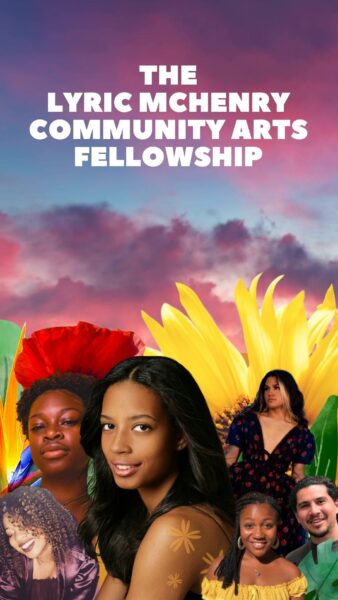
Contact: Grace Marie Cecile Toleque
Requirements
Lyric McHenry Community Arts fellows are required to work at least 35 hours/week for at least 9 consecutive weeks at their placements. Other commitments include the following:
Spring Quarter
- Attend a program orientation in April.
- Design a personal learning plan for the summer.
- Participate in placement identification process.
- Meet with academic mentor at least once.
Summer
- Update staff with changes to contact information.
- Share learning plan with site supervisor and update accordingly.
- Check in with IDA staff at least once during the fellowship.
- Create a post for social media talking about your fellowship experience
- Submit a final report, complete a program evaluation, and correspond with fellowship donor(s) as requested by fellowship program staff.
Autumn Quarter
- Meet with academic mentor at least once.
- Attend a debriefing for the purpose of reflecting upon and evaluating summer experiences.
- Participate in campus presentations to share experiences and help publicize the program.
Eligibility and Selection Process
Up to five Lyric McHenry Community Arts Fellowships are awarded. Currently enrolled undergraduate students from all academic disciplines are encouraged to apply. Priority may be given to students who have taken IDA courses. All applicants should exhibit a demonstrated interest in the arts that relates to a particular field of study. Applicants vary in academic interests, community service involvement and experience. Graduating seniors may apply with the understanding that preference will be given to competitive continuing undergraduate applicants.
This fellowship is intended for individuals whose application, references, and interview demonstrate:
- Integration of the fellowship experience with the applicant’s academic, personal, and/or career goals
- Prior interest or involvement in the subject area, including related coursework
- Strong interpersonal and intercultural skills
- A commitment to exploring how the arts can be a means of working toward justice
Complete applications will be screened, finalists interviewed, and fellows selected by a committee with the intention to announce fellowship awards prior to spring break.
Meet the 2023 Lyric McHenry Fellows
Laura Villalobos
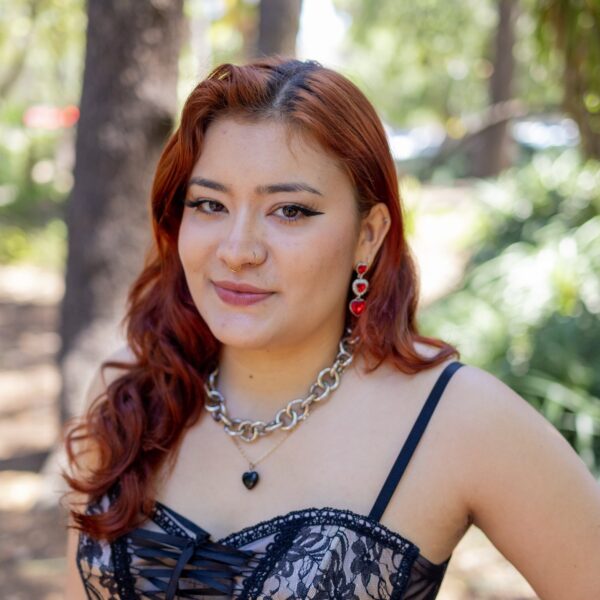
Laura’s art practice centers around the exploration of illegality and criminalization of immigrants. She seeks to uplift and advocate for her community through artmaking and storytelling.
During her fellowship, she will be in charge of research, marketing, and project management for Undocu+Collective. Through exhibitions, publications, residencies, symposia, digital resources and convenings, the UNDOC+Collective builds knowledge and visibility of undocumented creatives working in the arts today, shedding spotlight on historically excluded practices, to reclaim and empower their collective experiences, celebrate aesthetics achievements, and shape the future of undocumentedness.
Photo by @vjoyphoto
Leila Tamale
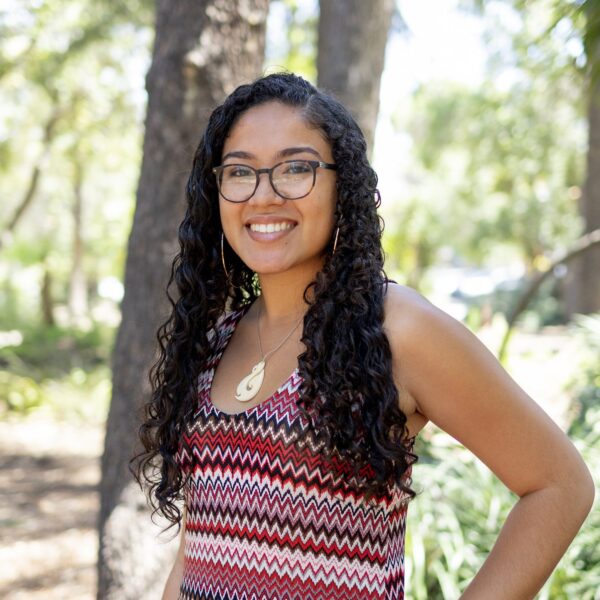
Leila is a passionate student artivist, eager to further social justice and youth empowerment in Tonga through art. She will be working with Seleka, a local Art initiative which supports art that expands upon and transforms traditional art practices into new, beautiful evolutions of culture and art forms as a form of social justice.
To reduce the stigma around innovative art, she will center storytelling and record keeping by boosting Seleka’s online presence through social media, interviewing Seleka artists and providing an insight into their art and community organizing processes. A bold budding poet and spoken word artist, Leila will also spearhead Seleka poetry branch, gathering local poets, organizing open mic events, facilitating workshops and inviting Iocal Tongan poets to lead and create in a very collective space.
Photo by @vjoyphoto
Skye Lyles
Skye is a sophomore who continues to overcome adversity. An aspiring writer and showrunner, Skye has gained great experience in language, linguistics, programming, and creative writing. She is pursuing a Bachelor of Symbolic Systems with a Minor in Creative Writing. As a Black queer woman writer, she will strive for liberation, decolonization, and dismantling of White cis-heteronormativity, one word and one television show at a time.
Baboon Animation: Founded by DREAMWORKS alumnus Mike de Seve, Baboon has grown to become one of the most accomplished animation writing and voicing teams worldwide, with 31 EMMYS collectively, and credits on dozens of the most popular animated films and series for families and teens.
Photo by @vjoyphoto
Asukulu Songolo
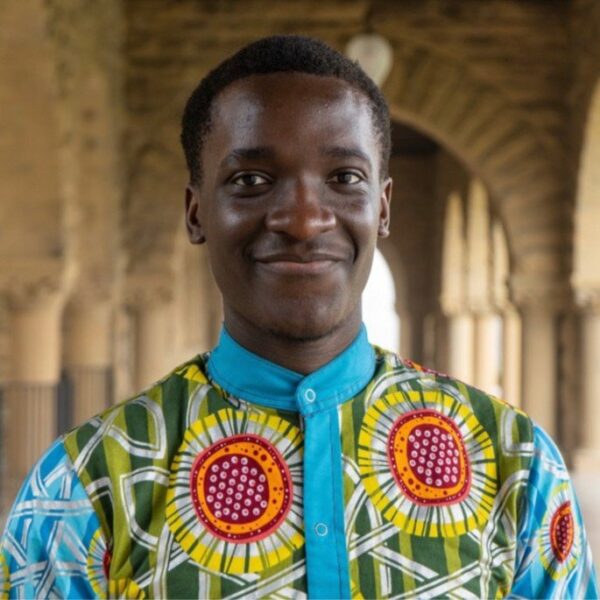
Asukulu Songolo is a sophomore majoring in International Relations and French. Through his various work experiences, Asukulu has demonstrated a keen expertise in data analysis and conducted research on African immigrants, refugee youth and youth engagement. As committee chair for Stanford African Students Union and also the Black Student Union, Asukulu has been instrumental in organizing fashion shows and cultural showcases to celebrate the beauty of the African diaspora and Black culture. As a child of African refugees, Asukulu has taken great pride in affirming his Congolese identity through his clothes. And his love of African fashion stems from the many gifts of African Print garments his mother would bring him back from the Congo throughout his childhood.
Asukulu will be working with Amah Ayivi, creative director of Marché Noir Lomé Paris, a sustainable fashion house which uses vintage, african artisanal textiles and secondhand clothing to redefine fashion. He will learn all the facets of the brand, from event planning, to styling for a shoot, to sourcing materials and tailoring as well as how to effectively scale a brand while reducing harm to the environment. He will also support the brand's marketing strategy through social media and content creation.
Photo by @vjoyphoto
Esmeralda Reyes
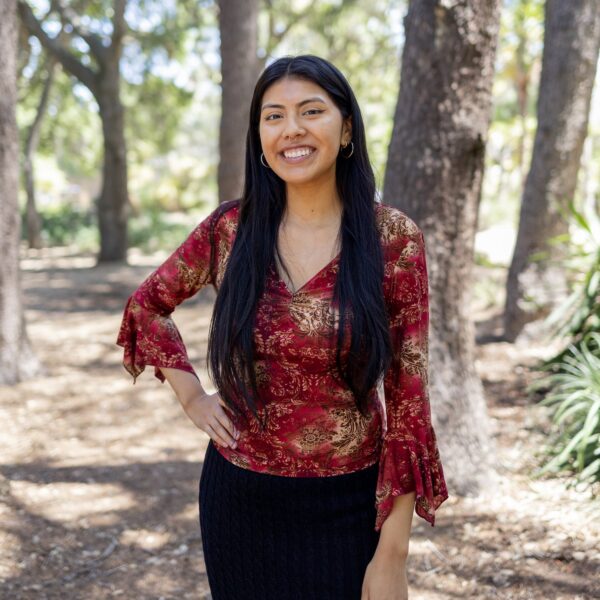
Esmeralda is a senior pursuing a major in Comparative Studies in Race and Ethnicity. An honors student of the Leland Scholars Program, Esmeralda is a native New Yorker with strong ties to her East NY, Brooklyn community. After taking a film/photography class with Adrian Burrell, one of IDA’s Visiting Artists, she developed a deep interest for the arts as a foundational tool for creating social change. This summer, Esmeralda will be working with the Interference Archive as part of the Born Digital Working Group.
The Born Digital Working Group handles social movement materials that were originally created in digital format, or material for which we don't have physical copies. The work of the group is split between figuring out how Interference Archive should and/or can collect, preserve, and provide access to digital material, as well as thinking conceptually about trends in digital material production in social movements.
Photo by @vjoyphoto
Alexia Gutierrez Franco
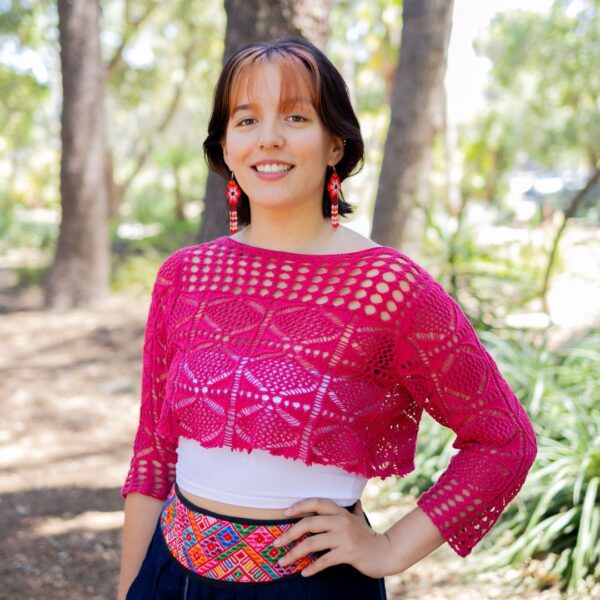
Alexia Gutierrez Franco is a junior majoring in Political Science and Government. A student community organizer with deep interest in K-12 education, Alexia wishes to forge a career path teaching and learning from young people around organizing toward a collective liberation. As an intern, Alexia has created and taught an Ethnic Studies course for middle school students in the Sophie's Scholars Program, counseled students of color regarding identity and experiences with injustice and constructed and utilized multimedia strategies and technology to convey information in a digestible and engaging manner.
As a denizen of East Palo Alto, Alexia will bring the same passion and commitment to her internship with the EPACenter this summer where she hopes to foster a space which cultivates communities of care and support for EPA Youth. The EPACenter is a creative youth development center in East Palo Alto that amplifies the creative potential in every young person. It seeks to harness the power of the art, design, technology, and culture to accelerate positive youth development outcomes for vulnerable youth in the City.
Photo by @vjoyphoto
Isaiah “Zae” Woods
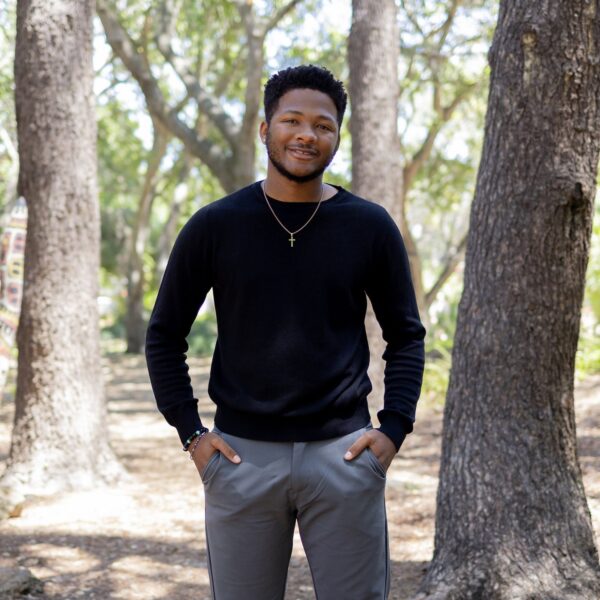
Isaiah is a junior majoring in Film in the Art & Art History Department. An honors student, Isaiah is passionate about filmmaking, public speaking, writing poetry and advocating for justice. Isaiah worked diligently to bring the renowned Netflix director, producer, and writer, David E. Talbert to campus this past April to learn about the craft of artistic choice in the film industry. Having successfully secured sponsorships of this amazing event from multiple on-campus partners including IDA, AAAS, Black Community Services Center and the Film & Media Program (to name a few), Isaiah was able to be in conversation with the filmmaker who will be his mentor this summer. Amongst his various tasks, Isaiah will work on script coverage during this internship.
David E. Talbert has been in the entertainment industry for 30 years. Talbert is heralded as one of the most prolific theater-makers in America. Having written and produced 14 national tours, he has garnered 24 NAACP nominations and won Best Playwright of the Year for The Fabric of a Man and the NAACP Trailblazer Award for his contributions and accomplishments in theatre. He has also received the New York Literary Award for Best Playwright of the Year for his musical, Love in the Nick of Tyme.Talbert most recently wrote, directed and produced Jingle Jangle: A Christmas Journey, Netflix’s first original live-action musical.
Photo by @vjoyphoto

